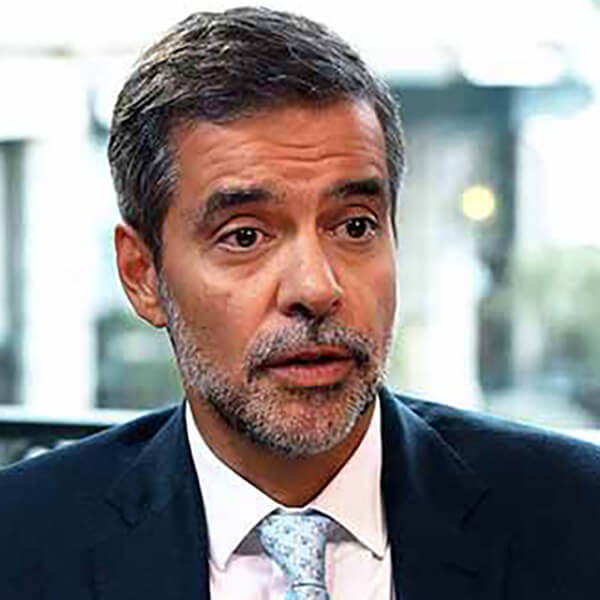environmental-social-governance
Capital IdeasTM
Investment insights from Capital Group
Fixed Income
It has been an unrelenting year of negative headlines, with a war in Ukraine, inflation concerns and recession fears jolting investors into a frenzy. Capital Group Investment Director David Cheng sat down with Portfolio Manager Luis Freitas de Oliveira to discuss his thoughts on the challenging macro backdrop, the investment implications for emerging markets debt (EMD) and how, in his view, the asset class remains investable amid the growing headwinds.
How has EMD evolved as an asset class over the years?
Emerging market debt has broadened and deepened significantly in the last few decades. As a result, the asset class has become significantly more appealing to a broader investor base. Issuance has increased, thereby improving liquidity and yield curves have become more developed, allowing us to add value across different maturities.
In the early stages, emerging market debt primarily traded defaulted bonds from a few large countries, primarily in Latin America. Although returns were higher, so were the risks. Today, the investable universe has grown tremendously to become significantly more diversified, which allows us to capture a range of opportunities with different risk return profiles. Hard currency bond investors now have access to sovereign credits from 69 countries, with no single country dominating the index.1 With greater variety comes a higher-risk credit profile. Most of the countries that raise debt exclusively in hard currency are lower-rated, export-dependent nations whose economies are at an earlier stage in their transition to becoming more developed. This is reflected in the ratings distribution. The average credit rating of sovereign emerging market dollar bonds is BB+, compared with BBB for local sovereign bonds.
.png)
How are emerging markets coping with the current inflationary period?
Emerging markets (EM) historically have had much more experience in dealing with higher inflation rates. Many EM central banks have been better prepared and much more proactive in responding to the current pricing pressures, raising interest rates well before developed markets. As a result, inflation has already plateaued and is starting to come down in some emerging markets, having established high real rates. A couple of EM currencies have also stabilised, which has helped to support financial conditions rather than add to inflationary pressures.
Where do you see opportunities among EM bonds?
Hard currency EM high yield bonds offer quite a significant premium relative to US high yield bonds. Some of the higher yielding credits in countries, such as the Dominican Republic, as well as Egypt and Tunisia look attractive. We are more selective within EM corporate high yield, and remain cautious about the Chinese property sector.
Within local currency bonds, we are finding opportunities in Latin America following steep interest rate hikes. Inflation linked bonds in Brazil, Mexico, and Columbia have already priced in high real rates. Countries in Latin America were also large beneficiaries of rising commodity prices and were less exposed to the conflict in Ukraine.
Opportunities in Central Europe look to be on the horizon. The low interest rate environment that we have seen in Europe for years is coming to an end. Central banks across the region have been aggressively hiking rates to tame inflation. Starting yields are now significantly higher, presenting an attractive entry point for investors.
1. As at 31 August 2022. Index: JPMorgan EMBI Global Diversified Index. Source: JPMorgan
2. As at 26 August 2022. GBI-EM GD: JPMorgan GBI-EM Global Diversified Index. EMBI GD: JPMorgan EMBI Global Diversified Index. Source: BlackRock Aladdin. Totals may not reconcile to 100% due to rounding.
Risk factors you should consider before investing:
- This material is not intended to provide investment advice or be considered a personal recommendation.
- The value of investments and income from them can go down as well as up and you may lose some or all of your initial investment.
- Past results are not a guide to future results.
- If the currency in which you invest strengthens against the currency in which the underlying investments of the fund are made, the value of your investment will decrease. Currency hedging seeks to limit this, but there is no guarantee that hedging will be totally successful.
- Risks may be associated with investing in fixed income, emerging markets and/or high-yield securities; emerging markets are volatile and may suffer from liquidity problems.
Our latest insights
-
-
-
United States
-
-
RELATED INSIGHTS
Past results are not predictive of results in future periods. It is not possible to invest directly in an index, which is unmanaged. The value of investments and income from them can go down as well as up and you may lose some or all of your initial investment. This information is not intended to provide investment, tax or other advice, or to be a solicitation to buy or sell any securities.
Statements attributed to an individual represent the opinions of that individual as of the date published and do not necessarily reflect the opinions of Capital Group or its affiliates. All information is as at the date indicated unless otherwise stated. Some information may have been obtained from third parties, and as such the reliability of that information is not guaranteed.
Capital Group manages equity assets through three investment groups. These groups make investment and proxy voting decisions independently. Fixed income investment professionals provide fixed income research and investment management across the Capital organisation; however, for securities with equity characteristics, they act solely on behalf of one of the three equity investment groups.
 Luis Freitas De Oliveira
Luis Freitas De Oliveira
 David Cheng
David Cheng